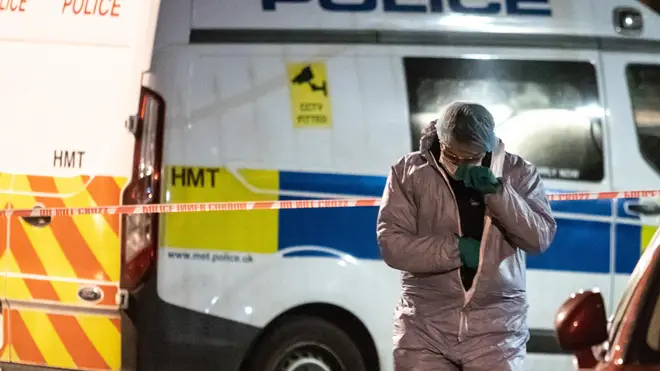
Paul Brand 3pm - 6pm
17 June 2021, 05:45

A flagship initiative by the Metropolitan Police to reduce violent crime in London has been a failure, LBC can reveal.
In May last year, as lockdown was lifting, the Met Police announced that they would visit 1,000 of London’s most prolific violent offenders, to try and turn them away from crime and onto “diversionary activity”.
LBC has discovered that just 6% of that number actually expressed any interest in signing up.
The individuals were chosen because each had been involved in a violent offence at least three times in the last year.
Launching the initiative last May, Commissioner of the Metropolitan Police Cressida Dick said: “We will be visiting all of those people, in most cases at least twice, and we will be talking to them about the opportunity they now have to get away from a life of violence. We’re hoping that these last 6-8 weeks have allowed many people a time away from crime and a time to think.”
And yet, figures released under Freedom of Information Laws reveal that of the 1000, just 669 were visited, with only 156 follow up engagements.
We asked how many of those had actually taken up the offer of “diversionary activity”, which included a variety of things like assistance with housing or finding a job, or referral to mental health support, and we were told that just 62 individuals “were interested in the option”.
A hit rate of just over 6%. It is unclear how many actually began such activity, but it seems likely that figure is lower still. Although the Met did say that a further 20 individuals made contact with them to ask about diversion.
The former head of the Met’s anti-knife crime crackdown known as Operation Blunt 2, Kevin Hurley, told us: “The only way to stop a prolific, violent, dishonest offender who’s at the top of their offending and predating on the public is to catch them, convict them and put them inside, to let them know there are consequences.
"Perhaps after they’ve done 8 or 10 years they might be rehabilitated, but to knock on their door and think they’re going to change is quite frankly naïve.”
The Metropolitan Police said there was no additional cost for the initiative, given that officers were redirected to it after a reduction in call outs during lockdown.
Nick Marr, a former police officer whose cousin Tashan Daniel was fatally stabbed in 2019 said: “My initial thought is: who came up with that? It’s one of these things that sounds good on paper but you just know in reality that’s not going to work. It’s a dream.
"They actually thought they were going to get a good response to this? I feel it’s been dreamt up by somebody who’s out of touch and has probably not dealt with criminals, or persistent offenders.”
A spokesperson for the Metropolitan Police said: “This initiative was born out of a unique opportunity during the pandemic to provide diversion opportunities to those involved in criminality. The Met will always look to explore these pathways given the fundamental work of policing is to prevent crime.
"With 62 individuals expressing interest from the 669 we count this as 9%. We also had a further 20 individuals contact the numbers provided on the letter requesting information on diversion, increasing this figure to 12%.
"These visits were based on evidence following a trial conducted in the West Midlands in 2019, where they visited offenders and monitored re-offending into the following year. The work proved successful in having a crime suppression effect and the Met aimed to replicate that in London.
"A full evaluation of referrals and activities that are taken up is just one outcome we measure as a result of the visits. In general, most activities such as this have a small outcome rate, but that’s not to say there is no effect and that we should stop trying.”